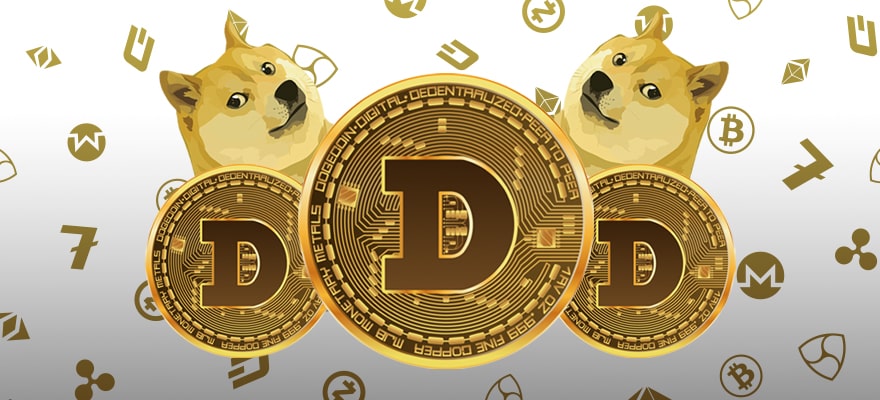In the ever-evolving world of blockchain and cryptocurrency, tokenization stands out as a transformative innovation that has the potential to reshape industries. By converting physical and tangible assets into digital tokens, tokenization enables fractional ownership, enhances liquidity, and facilitates easy transfer of assets. Whether it’s real estate, artwork, or commodities, tokenization is rapidly becoming the foundation for a more efficient, accessible, and decentralized economic model.
What is Tokenization?
Tokenization is the process of converting the ownership rights of an asset, whether physical or digital, into a blockchain-based token. These tokens represent a specific value or fraction of the asset, allowing investors and users to trade them easily on blockchain platforms. Tokenization simplifies the ownership of high-value items by dividing them into smaller, tradable parts, and this fractional ownership makes previously illiquid assets accessible to a broader audience.
For example, a piece of real estate worth $1 million can be tokenized into 1 million tokens, with each token representing a $1 ownership stake. Investors can purchase as many tokens as they want, giving them proportional ownership of the property.
How Tokenization Works
1. Asset Identification: The first step in tokenization involves identifying a suitable asset, such as property, art, or commodities. Once identified, the ownership rights of the asset are digitized.
2. Creating a Digital Token: The asset’s value is divided into tokens, which are issued on a blockchain platform. These tokens represent fractional ownership of the underlying asset.
3. Smart Contracts: Smart contracts are implemented to ensure the terms of ownership and transfer are automated and executed without intermediaries. These contracts enforce the rules for buying, selling, and trading the tokens.
4. Secondary Market Trading: Once tokens are issued, they can be traded on secondary markets, similar to how stocks are traded on exchanges. This opens up liquidity for assets that were traditionally illiquid.
Types of Assets That Can Be Tokenized
Tokenization can apply to a wide range of assets:
1. Real Estate: Real estate is one of the most prominent use cases for tokenization. By breaking down property into smaller tokens, investors can buy a fraction of the asset without the need for full ownership, making it easier for smaller investors to participate in real estate markets.
2. Commodities: Physical commodities like gold, oil, or diamonds can be tokenized, making them more easily traded on digital platforms.
3. Artwork: High-value artworks have often been inaccessible to the average investor. With tokenization, art can be fractionalized, allowing multiple investors to own a portion of a masterpiece.
4. Collectibles: Rare collectibles, from vintage cars to luxury watches, can be tokenized, providing liquidity and ownership opportunities in otherwise illiquid markets.
5. Equities and Bonds: Traditional financial assets like stocks and bonds can also be tokenized, enabling 24/7 trading and providing access to a global investor base.
Benefits of Tokenization
1. Increased Liquidity: Tokenization enables fractional ownership, which significantly increases liquidity for traditionally illiquid assets. Real estate, for example, becomes more tradable when tokenized because smaller portions of a property can be bought and sold on secondary markets.
2. Accessibility for Small Investors: Historically, assets like real estate or art required significant capital for investment. With tokenization, these assets can be broken down into smaller, more affordable units, allowing smaller investors to participate in markets that were once exclusive to the wealthy.
3. Reduced Transaction Costs: Since transactions occur on a blockchain, intermediaries like brokers, banks, or agents are reduced, lowering the cost of buying and selling assets. The use of smart contracts automates the process, further minimizing costs and reducing the time required for transactions.
4. Transparency and Security: Blockchain technology ensures that all tokenized transactions are recorded on an immutable, transparent ledger. This enhances trust and reduces the risk of fraud or manipulation, making tokenized markets more secure.
5. Global Market Access: Tokenized assets can be traded globally, breaking down geographic barriers and allowing investors from anywhere in the world to participate. This global access increases demand and liquidity for tokenized assets.
Challenges of Tokenization
Despite its numerous advantages, tokenization also comes with challenges:
1. Regulatory Uncertainty: The legal and regulatory framework surrounding tokenization is still evolving. Different jurisdictions may have varying regulations for security tokens and digital assets, creating uncertainty for investors and issuers. Ensuring compliance with security laws is crucial for the success of tokenized assets.
2. Technological Barriers: While blockchain technology is advancing, it is still in its early stages, and some platforms may not yet be equipped to handle large-scale tokenization projects. Issues related to scalability, security, and interoperability between different blockchain networks must be addressed.
3. Market Adoption: Widespread adoption of tokenization will require education and understanding from both investors and asset owners. Building trust in blockchain-based systems is essential for tokenization to reach its full potential.
4. Valuation and Liquidity Risks: The valuation of tokenized assets can be difficult, especially for illiquid markets like art or real estate. Additionally, while tokenization increases liquidity, there is still the risk of insufficient demand in secondary markets, which could limit the ability to sell tokens quickly.
The Future of Tokenization
As blockchain technology continues to mature, the potential for tokenization is immense. The process is expected to revolutionize industries by democratizing access to high-value assets, enhancing liquidity, and reducing inefficiencies in traditional asset markets. Tokenization could become a critical component of the global economy, with industries such as real estate, finance, and art leading the charge.
Several blockchain platforms, including Ethereum, Polkadot, and Tezos, are already enabling tokenization projects, and new platforms are emerging to cater specifically to the tokenization of assets. As regulatory frameworks develop and adoption increases, the tokenized economy is poised for exponential growth.
Tokenization is a powerful innovation that has the potential to reshape how we view and manage physical assets. By enabling fractional ownership, improving liquidity, and providing access to traditionally inaccessible markets, tokenization is democratizing investment opportunities. While there are challenges to overcome, such as regulatory uncertainties and technological barriers, the future of tokenization looks promising. As more industries embrace this technology, it could revolutionize how assets are owned, traded, and valued in the global economy.


